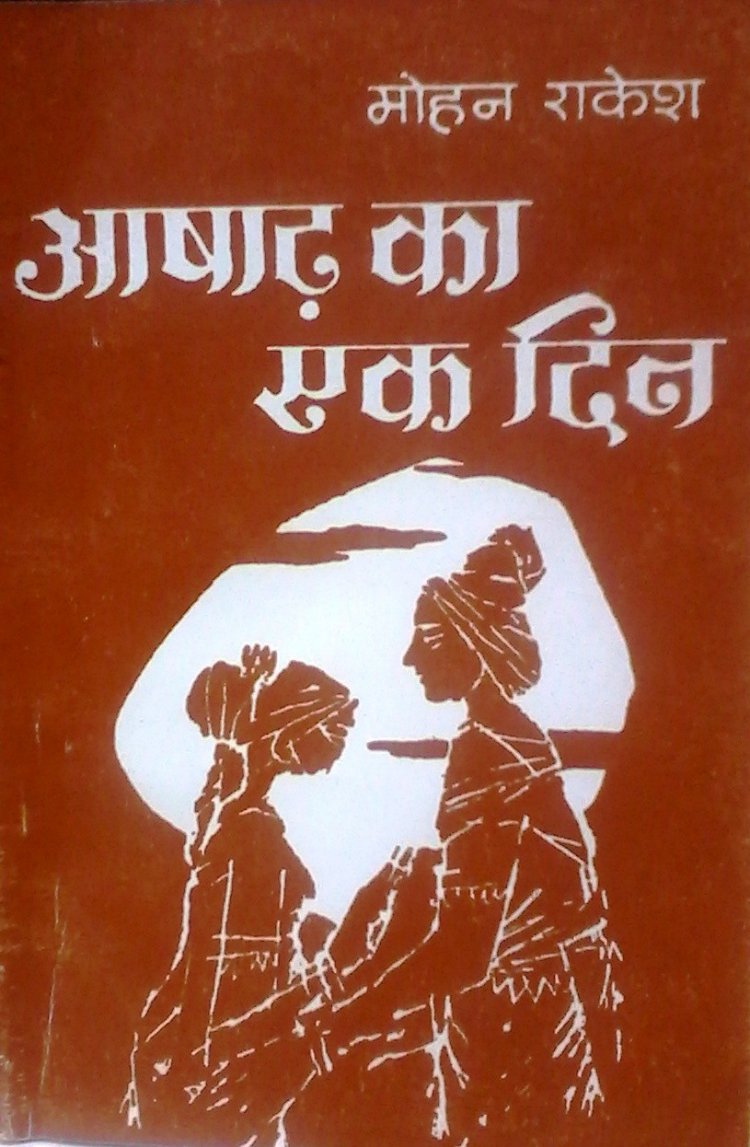Ashadh Ka Ek Din

Rating: 4.4/5
Author: Mohan Rakesh
Publisher: Literacy House Publishers & Distributors
Publishing Date: 1958 (originally published), 2009 (re-published)
Language: Hindi
Genre: Play
ISBN-10: 8170284007
ISBN-13: 978-8170284000
Format: Hardcover
Pages: 128
Cost: Rs. 129 (Hardcover), Rs. 122.55 (Kindle Edition)
Plot:
‘Ashadh ka ek din’ is a three-act play centered on Kalidas' life. In the first act, he is leading a peaceful life in a Himalayan village and is romantically involved with Mallika. However, he is invited to appear at King Chandragupta II’s court in far-off Ujjayani.
In the second act, Kalidas has achieved fame and is married to a sophisticated noblewoman, Priyangumanjari, while Mallika is heartbroken and alone. He avoids meeting Mallika, but Priyangumanjari does. Priyangumanjari demeaningly offers to help Mallika by making her a royal companion and marrying her to one of the royal attendants, but Mallika declines.
In the third act, Kalidas reappears in the village. Mallika (with her mother Ambika dead) is now married to & has a daughter from Vilom. Kalidas comes to see Mallika but, learning of her situation, despairs. The play ends with him leaving her house abruptly.
Review:
‘Ashadh Ka Ek Din’ is called the first drama of the modern era of Hindi drama. The play focuses on the personal life of Mahakavi Kalidasa, in the period from 100 BCE to 500 AD.
The title of the book directly points to how the story begins- with the day of the month of ashadh when the first rain of the season occurs. The last scene of the story also takes place in the month of ashadh. Kalidas’s own creation ‘Meghdootam’ also states its beginning in the month of ashadh when the lead character sees the first cloud of the season on a mountain top.
Mohan Rakesh has not portrayed ‘Kalidas’ as this eminent, heroic figure; Instead, he has given his character shades of grey. In fact, the prime character of this play is ‘Mallika’. Mohan has used impressive use of metaphors which almost sounds poetic. For example, when Kalidas speaks to Mallika:
“The backdrop of Kumarshambhav is this Himalaya and the ascetic Uma is you. The pain of Yaksha of Meghdoot is my pain and the bruised by separation Yakshini is you…”
The dialogues drive the story and are very powerful in this play. The female characters in the play are developed to bear a strong personality, someone who has their own mind, their own opinions. For example, in this excerpt, Mallika is shown to come across as an independent and decisive woman:
"I have described a feeling in spirit. For me, it is greater than the relationship and all relationships. I really love my feeling which is pure, gentle, immortal…."
Before this, Hindi plays were too idealistic, devoid of connection with contemporary reality. Above all, their language wasn't suitable for the stage, but this play changed it all.
Milestones of the Book:
- In 1959, it was awarded the ‘Sangeet Natak Academy Award’ for being the best drama of the year.
Adaptations:
- In 1971, director Mani Kaul made a film based on this play which went on to win the Filmfare award for Best Film of the Year.
About the Author:
Mohan Rakesh (8th January 1925 - 3rd January 1972) was the litterateur of the 'Nai Kahani Andolan'. The rise of Mohan Rakesh on the horizon of Hindi drama came at a time when the tide of cultural renaissance in the fifties after independence was pulsing every sphere of life in the country. He paved the way for the Hindi theatre, completed the face of it completely.
Rakesh's popular novels are 'Andhere Band Kamre', 'Na Aanewala Kal', 'Antaraal', and 'Bakalama Khuda'. Apart from this, 'Aadhe Adhure', 'Ashadh ka ek din', and 'Lehron ke Rajhans' are some of his famous plays. His most famous play was 'Lehron ke Rajhans'. Mohan Rakesh wrote in genres like drama, novel, story, travelogue, essay, etc.
In some stories, he expressed the agony of the Partition of India in a severe manner. He has been the editor of 'Sarika' for some years. He was honoured with 'Sangeet Natak Akademi' for composing of 'Ashadh Ka Ek Din' and 'Adha Adhure'.















































